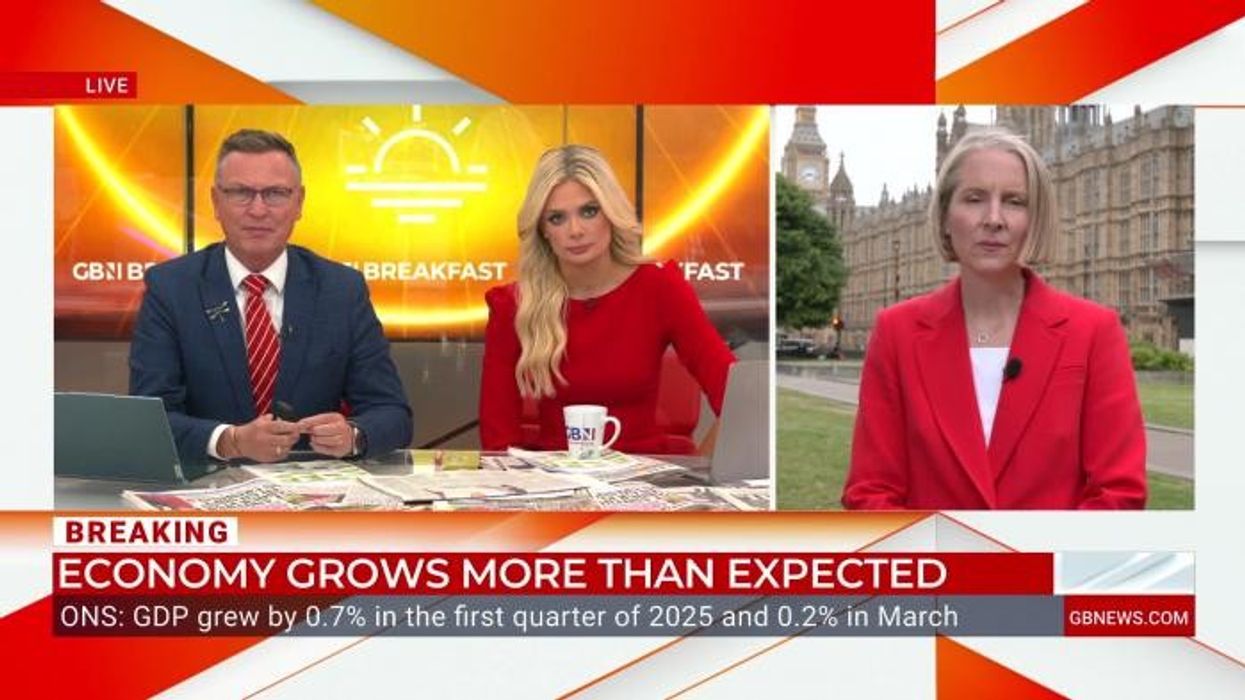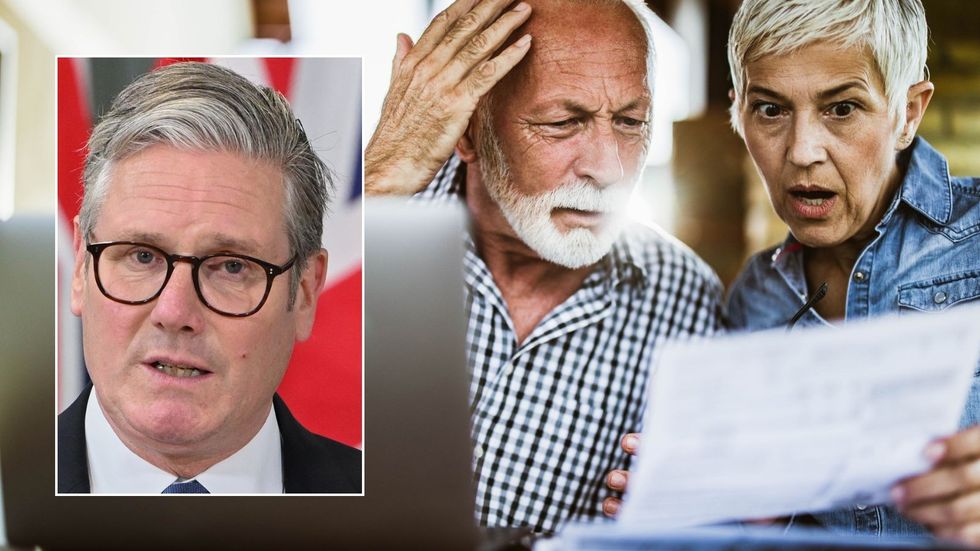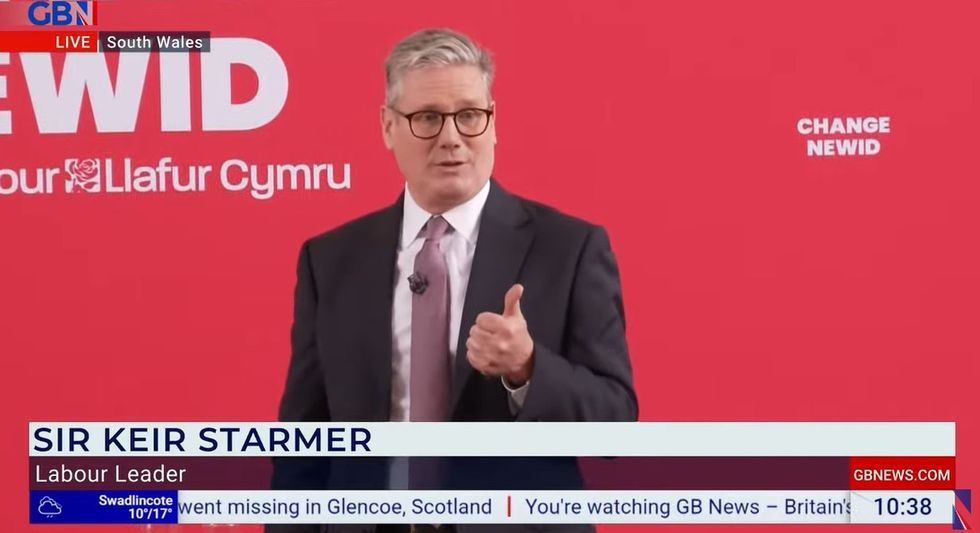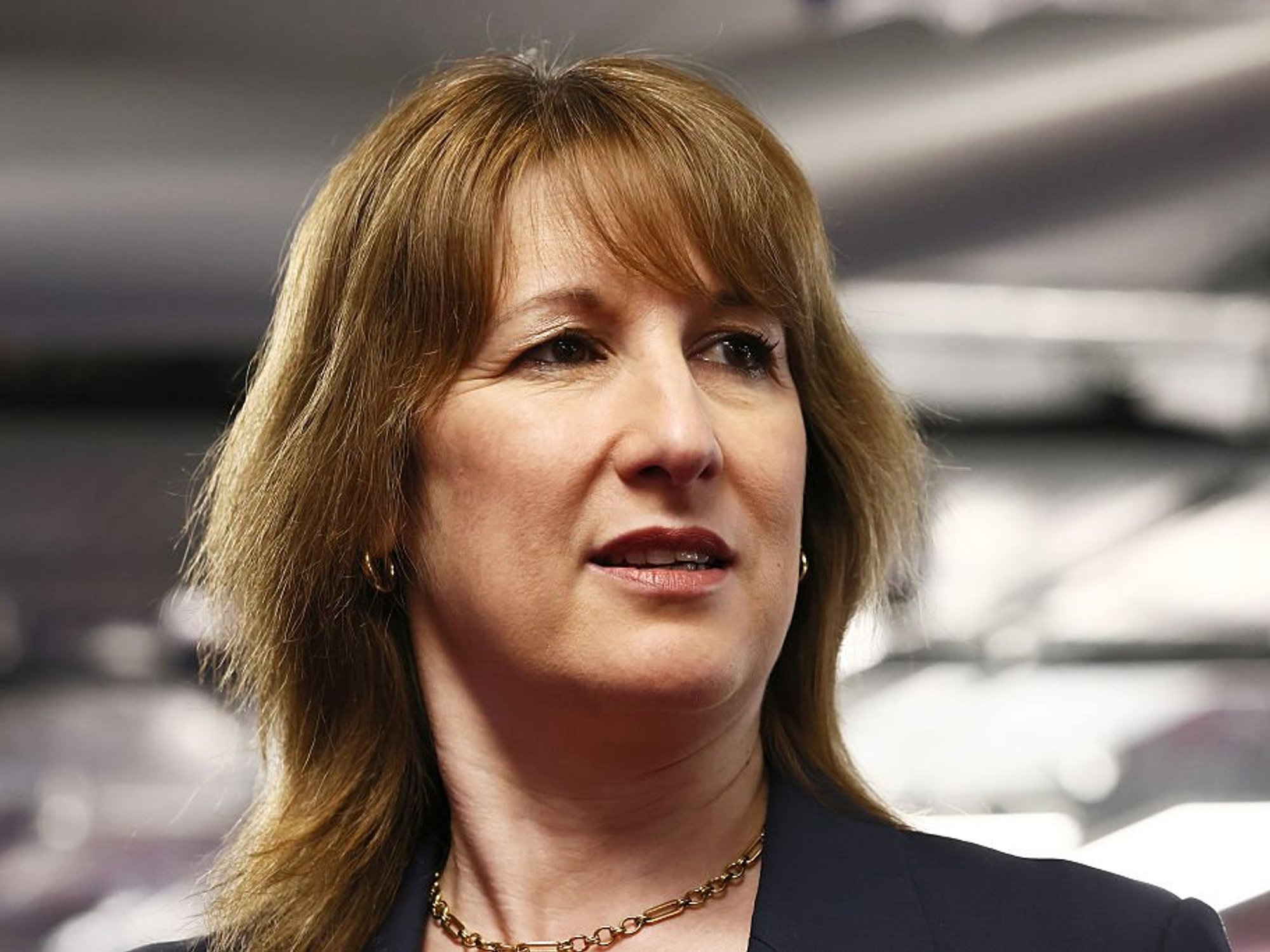Economy warning: 'Ageing population' blamed for debt crisis as Keir Starmer told he faces 'difficult choices'

The UK economy grew better than expected in the first quarter of 2025
|GB NEWS

Despite GDP growth forecasts being upgraded, the IMF is sounding the alarm over the impact of borrowing costs on public spending
Don't Miss
Most Read
The Labour Government faces "difficult choices" loom on tax and spending as the country grapples with unsustainable debt levels exceeding 100 per cent of GDP and annual interest payments surpassing £100billion, the International Monetary Fund (IMF) has warned.
Yesterday, the think tank upgraded its growth forecast for the UK economy and urged the Treasury to ease on its fiscal rules. Analysts have noted Prime Minister Keir Starmer Chancellor Rachel Reeves is operating with minimal financial headroom, running the public finances with a buffer of less than £10Billion against her borrowing targets.
In its annual review the IMF repeatedly urged Reeves to "stay the course" on plans to stabilise the finances and bring down annual borrowing. However, the Fund warned that recent policy promises from the Prime Minister cannot be funded through additional borrowing.
"The authorities will need to offset that with other savings measures somewhere else. Our view is that these other measures could be both on the tax or on the spending side," said Luc Eyraud, the IMF's mission chief in the UK.

Labour faces "difficult choices" when it comes to the economy as more public spending goes towards the growing "ageing population"
|GETTY / PA
Experts are sounding the alarm that even relatively modest policy tweaks compared to total Government spending, which is on track to hit £1.5trillion per year later this decade without clawing the money back elsewhere.
Britain's enormous debt mountain and high interest rates create a formidable challenge for future borrowing capacity. The national debt already exceeds 100 per cent of GDP on the watchdog's measure of gross indebtedness, with high interest payments consuming more than £100billion per year.
According to the IMF, Britain only has "limited space to finance this spending through extra borrowing, given high debt and elevated borrowing costs."
The Fund noted that unless revenue is increased, "tough policy decisions on spending priorities and the role of the state in certain areas will be needed to better align the coverage of public services with available resources".
Do you have a money story you’d like to share? Get in touch by emailing money@gbnews.uk.
The IMF states: "In the longer term, difficult fiscal choices will likely be needed to address spending pressures and rebuild fiscal buffers. Under current policies, staff analysis suggests spending to be around eight per cent of GDP higher by 2050, mainly due to additional outlays on health and pensions from population ageing."
Government spending currently amounts to around 45 per cent of GDP, which would rise firmly above 50 per cent on these IMF projections.
Taxes in the UK are already heading to their highest level since the Second World War. Analysts note this spending surge will require major tax rises or spending cuts elsewhere to maintain fiscal sustainability.
The debt crisis extends far beyond Britain's borders, with Governments in other countries borrowing excessively and threatening trust in the global financial system.
LATEST DEVELOPMENTS:

Prime Minister Keir Starmer is attempting to navigate a turbulent economy
| GB NEWS Agustin Carstens, the head of the Bank for International Settlements, warned that Governments across the world are borrowing too much and risk destroying trust in money and the financial system, with potentially devastating ramifications.
"It is essential for fiscal authorities to curb the relentless rise in public debt," Carstens said in a speech in Japan.
"Fiscal authorities have a narrow window to put their house in order before the public's trust in their commitments starts to fray. Markets are already waking up to the fact that some paths are not sustainable."
He warned that: "Fiscal consolidation in many economies needs to start now. Muddling through is not enough. In many countries, current policies imply steadily rising public debt in the coming decades.
"Pressures for more public spending will only increase, not least due to population ageing, climate change and, in many jurisdictions, higher defence spending."










